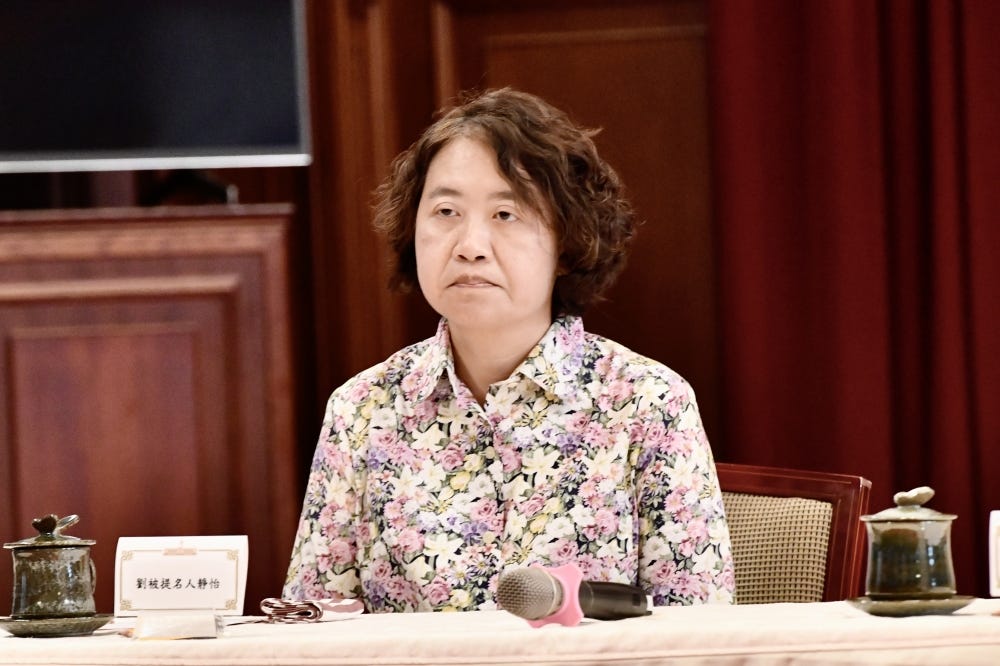Is Lai losing his grip on the DPP caucus?
In the face of new laws, Taiwan’s top court no longer has a quorum. Why then did the DPP just vote against one of their own nominees?
The Taiwanese Constitutional Court is set up quite differently to the US Supreme Court. Instead of 9 justices, there are 15 grand justices, and far from holding the job for life, each justice serves a term of 8 years and are not allowed to hold consecutive terms. As the Democratic Progressive Party (DPP) has been in power since 2016, this now mean all the justices on the court are DPP-appointees, a state of affairs opposition parties were desperate to remedy, especially as the court has been trending toward constitutional interpretations they perceive as partisan rather than principled.
Leveraging their majority in the legislature, the Kuomintang (KMT) and Taiwan People’s Party (TPP) alliance recently passed the Constitutional Court Procedure Act (憲法訴訟法) which introduced for the first time a quorum requirement: The Constitutional Court cannot function with less than 10 justices, and 9 have to be in agreement for a constitutional interpretation to stand.
This instantly put the ability of the court to function in jeopardy as there are presently only eight members on the Constitutional Court. With the current court two short of a quorum and his party in the minority in the legislature, President Lai Ching-te(賴清德) is left scrambling to try and fill at least the two seats needed to reach the quorum.
Unsurprisingly, six of his seven appointees were blocked by the KMT/TPP alliance. But the 7th appointee was where it got weird. The TPP legislators broke from their KMT allies to vote for Liu Ching-yi (劉靜怡), a firebrand professor from National Taiwan University known for her blistering criticism of politicians regardless of party affiliation. With the 8 TPP legislators, Liu could have been voted through. Except all 52 DPP legislators voted against her as a block, leaving Liu with the unfortunate record of the grand justice nominee who received the fewest votes in history.
A Nominee Scorned
How did this happen when the DPP was surely desperate to reach a quorum? Well, you should ask DPP Caucus Whip Ker Chien-ming (柯建銘). “Anyone who votes for Liu will be kicked out of the party,” said Ker. The reason? Her previous criticism of DPP figures such as Tsai Ing-wen and Su Tseng-Chang. In addition to being snubbed by all the DPP legislators, she also came under attack online characterizing her as a “war criminal” (a common term to describe someone blameworthy on your own side in Taiwanese politics) guilty of “selling out Taiwan.”
Liu characteristically hit back on social media: “If I am the kind of war criminal I’ve been described as by the DPP Caucus, then isn’t the president who nominated me likewise a traitor to Taiwan?”
The fact that she’s been borked by the same party that nominated her for criticizing the DPP is “destroying the people’s trust in the constitutional court,” said Liu in a Facebook post.
“A student asked me if I feel humiliated. Actually, if the standard is [the DPP] cannot be criticized, it should be the other six justices who got all the DPP votes who have been humiliated. Even the eight justices currently serving could also be insulted.”
Democratic Progressive Party (DPP) Secretary-General Rosalia Wu (吳思瑤) defended the rejection in line with the separation of powers.
“The president holds the power to nominate, the Legislature exercises its right to approve or reject nominees.”
While that is true as far as it goes, it’s a hell of a snub to Lai, who is not just the President but also the DPP Party Chairman. It also strengthens the perception that Lai is not in control of his party, especially compared to his politically adroit predecessor Tsai Ing-wen. Political commentator Donovan Smith has been a keen observer of the return to factional infighting in the DPP to the detriment of party unity. The Tuesday vote certainly makes it look like Ker is in the driver’s seat…not Lai.
What would it take to reach a quorum?
The borking of Liu meant the DPP wasted a golden opportunity to fill one of the two seats necessary to reach a quorum. The KMT made their red lines pretty clear: they would veto any nominee they find excessively partisan or any nominee likely to vote in favor of abolishing the death penalty. The TPP, as they showed with Liu, are likely to be more flexible. Despite her criticism of DPP figures, Liu is thought of as an ideologically “green” candidate and pro the abolishment of the death penalty.
The DPP have harshly criticized the Constitutional Court Procedure Act for paralyzing Taiwan’s top court. But by rejecting their own candidate, they’ve also shown a lack of urgency about unparalyzing it. In my opinion, there is nothing inherently wrong with setting a quorum of ten for a court of fifteen. The additional pressure to nominate a moderate and highly-qualified candidate is real, but so is the possibility of blowback for the opposition parties if they are seen as excessively obstructionist.
The Constitutional Court is not supposed to be a partisan body, and allowing candidates to be rejected because they've previously criticized the ruling party is not a good look. If President Lai fails to take control of his party and fill the quorum, Taiwan might be thrust into a constitutional crisis as the court becomes functionally paralyzed. If that happens, Professor Liu (who became something of an instant social media star) will be there to serve up all the acerbic commentary about it.




The DPP is behaving perfectly rationally given the lack of electable KMT candidates at most levels and the likely implosion of TPP. Their focus is not on optics, much less good governance, but on ideological purity; in many ways, not unlike the Republican Party in the red states.